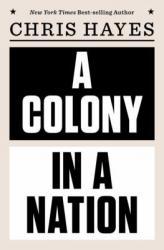
Chris Hayes, a journalist on MSNBC, wrote this book after his experience reporting in Ferguson, Missouri after the killing of Michael Brown by a police officer in 2014. In the book, he posits that we treat people of color in this country the same way that King George treated the colonists in the lead-up to the Revolutionary War: by enacting a police state that exploits the few for some sort of economic gain. We exist as two entities in this country: the Nation, which is concerned with upholding the law, and the Colony, in which we're more concerned with creating order.
This was a quick, excellent read. I'm usually not a fan of using personal anecdotes to make a point, but Hayes does that effectively here: most noticeably because he then will follow an anecdote with data to back up whatever it is he's saying. The anecdotes, though, make the book particularly interesting, especially because they are often presented as a "what if" thought experiment as to how Hayes' experience might have been different had he been a person of color. Part history lesson, part social justice treatise, A Colony in a Nation is a book that's not to be missed, particularly by those that are concerned with issues within the criminal justice system, and the egregious civil and human rights violations that are enacted upon citizens of color in the United States. 5 stars.
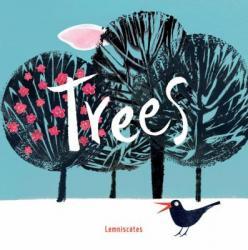
The best time to plant a tree is 20 years ago. The next best time is today. -Chinese Proverb
This is a lovely book that quietly conveys what trees are, how they live, and what they do. The illustrations beautifully magnify the simple text in what I would call biblioharmony. Snuggle up with your little one and check out Trees by Lemnisactes.
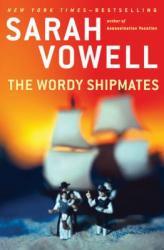
This book takes a look at the lives of the early Puritans that crossed over to make a better life for themselves in America. While that topic doesn't immediately scream, "Read me!" I was forced to read it for school, and I actually really enjoyed myself. The author, Sarah Vowell, has this dry sense of humor that makes her long explanations about the technicalities of the religion and of how society worked back then interesting while still informing you of the topic and the message she is trying to put across. I think whether I would recommend this book depends on who wants to read it. If you are someone who is looking for a non-fiction novel that gives a different perspective to what is generally taught in history classrooms, I say go for it. If not, you might still enjoy it simply because the author is hysterical, but that might not be the case if you are not interested in learning about the actual topic.
Reviewer: Grade 11
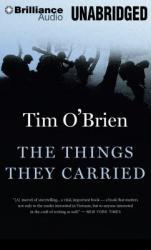
In this book, Tim O’Brien gives a very blunt and realistic view
of the Vietnam War, not only including stories from when he served himself, but also explaining what happens to the soldiers when they finally do get to go home. I honestly would recommend this book to anyone who is willing to read it. While we love and respect our military for saving our country, I think it is very important to also learn about what actual happens out on the battlefield, about the little decisions that can change everything in the heat of battle, and most importantly the guilt that comes with killing your fellow man. My father served in the military for 25 years and to me this book is just so important, it tells stories of war that do not always have a happy ending, or stories that do not necessarily end with the good guys triumphing over all evil.

Having been a Christian for some time, I was familiar with the name Philip Yancey. I knew he often wrote books about Christianity and how those of us in the faith should examine some of the more challenging topics of our belief.
When I picked up Rumors of Another World from a friend, I was expecting an examination of the afterlife promised us in God's Word. Part of me was planning to use this book as a bit of research for my own fictional writing, or at least to give me ideas on how to incorporate a heavenly realm into it.
In the end, this book was not what I expected.
It has been a long time since I've read any Yancey, but I don't think this is his strongest work. My primary issue with it is that it tries to speak to too many audiences. If it either focused on trying to convince atheists and other scientific-minded individuals that there is a heaven and a hell or helping believers enforce their apologetics on the topic of the afterlife, it could have worked. Instead, it (almost ironically) sits in the middle of these two worlds, never diving deep enough to make a solid point about anything.
Furthermore, while I appreciated the anecdotes and quotes from other authors, many of them were reused throughout the book, making the whole narrative seem repetitive and redundant. I mean, I get it: C.S. Lewis is an excellent writer with a ton of great quotes, but there are other Christian authors out there as well. In the end, Rumours of Another World provides a few thinking points for Christians and non-Christians alike, but it never really challenges our deeply held beliefs or leads us into startling, life-changing revelations.
An OK book that breaks down some reductionist arguments, I give Rumors of Another World 2.5 stars out of 5.
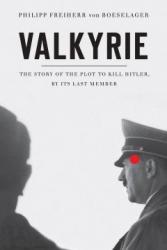
I first gained awareness of “Operation Valkyrie” when the film starring Tom Cruise, Valkyrie (2008), was first released. It makes logical sense to me that not all Germans involved in the war were Nazis, and not all Germans agreed with Hitler’s tactics. It is then the logical conclusion that some of them would attempt to assassinate the leader who had brought their country into a sweeping, global conflict. While this assassination attempt failed, I was still curious about the inner-workings of the plot and the people who would go so far as to try and kill Hitler.
My expectation of this book was for it to be an in-depth analysis of the many facets of the operation. From Hitler’s security concerns to the backgrounds of the lives of the individuals involved, I was expecting this book to be a non-fictional examination of the assassination that never succeeded. Instead, I was a little surprised to read the personal account of one of the conspirators of the assassination. The whole narrative was quite short (not even four and a half hours long), and left me wanting more. While this first-person account was entertaining, it wasn’t quite enough to satiate my desire for knowledge.
Because this book was only the translated account of Philipp Freiherr von Boeselager, there were plenty of details about his life and the life of his brother, but not much else. I was hoping his story would be the structure on which a deeper narrative would develop, but it remained the pure and unadulterated memoir of this single individual. I can’t fault the book for being the simple story of a German who wasn’t going to stand around and let Hitler ruin his country, but if there were a historical “wrapping” added to it, I probably would have gotten a lot more out of the book.
A simple story about a failed assassination attempt, I give Valkyrie 2.5 stars out of 5.
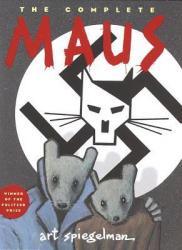
Maus is a two-part graphic survival story of World War II in Auschwitz. It is a true story of Art Spiegelman's father, who was a Polish Jew and was put into Auschwitz, one of the biggest concentration camps in Nazi Germany.
The comic book style is an amazing way to learn history, as it enforces themes through images and tells a story rather than spitting facts, like some history books do. The author portrays different nationalities as different animals, which stands as an ongoing theme in the book: The Jews are the mice and the Nazis are the cats. This makes for an easy relation between the two (cats hunt mice). I am not a huge fan of learning history for the sake of learning history, but I adored this book. I found it intriguing on a very personal level, but also extremely informative. I strongly recommend Maus.
Reviewer Grade: 11
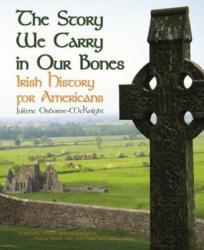
I checked out "The Story We Carry in Our Bones: Irish History for Americans"
to do research on Irish culture for my novel. It was an extremely informative book that describes what life was like for ancient Irish people and I'd highly recommend it if you would like to learn more about this fascinating culture.
Grade: 11
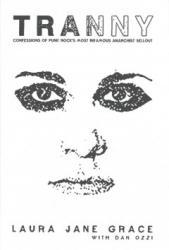
I love this book with all my heart. As a longtime fan of Against Me!, it was so exciting to read about how the band started off, the positive and negatives of touring and recording, the growth, decay and rebirth of the band and how the entire time the primary figure that has driven Against Me! from the very beginning was struggling with her identity. I'm utterly in love.
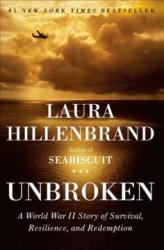
Unbroken (teen version) is a well crafted biography written by Laura Hillenbrand. Unbroken tells the story of Louie Zamperini, an Olympian and bombardier of World War II. Louie was mischievous and trouble-making as a young boy until his older brother, Pete, introduced him to running. As Pete urged Louie into the sport of running, Louie began to desert his old ways and commit himself to running. Louie soon was at the top of his school in running, setting new records and winning numerous races. Louie’s skill carried him all the way to the 1936 Berlin Olympics. Reaching the strongest point of his life, Louie hoped to travel to Tokyo for the following Olympic games. Unfortunately, terror came and his dreams were to be put on hold.
World War II struck, causing Louie to enter into the Army Air Forces as a bombardier. Louie and his team of airmen faced many near death experiences.
Although these were blood-curdling situations, none would compare to what Louie was soon to face. On a rescue mission in May of 1943, Louie’s plane crashed. The crash led to a terrifying and unfathomable journey on which Louie survived life on a raft and the wrath of Japanese guards of the POW camp he resided at. Louie went through incomprehensible pain from being beaten by his captors, having to perform forced labor, going through starvation, and constantly battling a sickness. He was also robbed of his self-esteem and was treated like he was worthless. Consequently, Louie’s story is breathtaking and intriguing. Unbroken provides insight on the torturous lives of POW during WWII and the determination and perseverance of many during WWII.
I highly recommend this book to anyone who is a WWII buff, history lover, or is in search of a thrilling and breathtaking story. I enjoyed it because I am interested in learning about World War II and I found the book to be moving.
Unbroken is fascinating and is not dull or boring. The book will leave you wanting more and you will find it hard to put it down. However, I found the beginning part to be a bit uninteresting and tedious, as it told about the planes and equipment for World War II. Once that part is over, though, the book is quite exhilarating. I would caution that younger children should not read the book, as there are some graphic and gruesome scenes of how the POWs were treated. I would suggest the book for teens between the ages of 13-16, since there is an adult version of the book for those older than these ages.
Unbroken is one of my favorite books, and anyone who is interested in history or is seeking an electrifying story should read it.
Reviewer Grade: 9

Fans of Vardalos get a behind the scenes look at her (generally not-so) glamorous Hollywood life -- and a personal tale about her struggles with infertility and foster-adoption that transformed her in to the "Instant Mom" of the title. While most parents on this journey don't have to negotiate with the entertainment press, Nia's story is funny, sweet, and deeply relatable. She is currently an Adoption Ambassador for the Adoption Council of Canada (and the book does include some information for those starting their family adoption journey) but the story stays close to home, close to the heart, and is a charming personal tale of her family's origins.
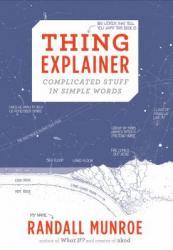
Growing up in the 1990’s, one of the defining books that helped me understand the world around me was David Macaulay’s The Way Things Work. Using “cartoonish” drawings of plenty of everyday (and not so everyday) machines, I gained plenty of useful knowledge that probably led me to eventually earn my Master’s Degree in Mechanical Engineering in 2009. While Macaulay’s illustrations were straight forward enough that they didn’t need explanations, some concepts around today certainly need some words to help gain an understanding of the way things work.
Enter Randall Munroe, famed “xkcd” webcomic author and an all around smart guy. In late 2012, he published a comic that described each of the systems in NASA’s Saturn V rocket with simple words. Described as “U.S. Space Team’s Up Goer Five,” the concept of using shorter, more common words to explain complicated concepts came to its full fruition in Thing Explainer. Using the thousand most common words, Munroe manages to humorously and thoroughly explain such “things” as the U.S. Constitution, The International Space Station, and the Large Hadron Collider (amongst many other common and complicated ideas).
While the concept is fun and this book could easily be used to help children understand these fascinating ideas, the thousand-word constraint is also its biggest weakness. Sure, I could deduce that “shafts” were usually “sticks” (or “hallways” if they were like mine shafts), and “fire water” often meant gasoline (or some other combustible fuel). However, I often found myself trying to figure out what the actual name of the item or part in question was because the “simple” name wasn’t self-explanatory. Also, it was sometimes a challenge to read all the small text, as it usually wasn’t arranged in a linear format, instead appearing in chunks around the illustrations to be close to the parts that were being described.
A unique concept to bring advanced technological knowledge to everyone, I give Thing Explainer 4.0 stars out of 5.
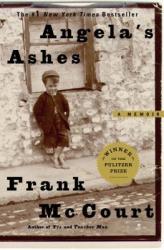
This is an incredible book. One day, while going through some stuff in my basement, I came along this book and decided to read it even though I already have a bazillion books I plan on reading. This one surprised me. It is so funny yet so sad as you get to grow up with this witty young boy through the trials and tribulations of living in Ireland with a dad that can't keep a steady job "enough to feed ya a days meal" and the hardship the school boys bring on the daily. You will probably find yourself crying and laughing at the same time all throughout this book. It's just a work of art.
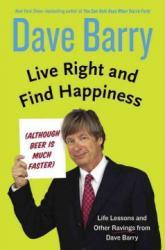
I grew up on the humor writings of Dave Barry. Each week I’d take his humor
column to school and read it to my friends during my lunch break, laughing at
his comedic style and funny topics. Consequently, I found myself enthralled
by his books, each one leaving me in stitches due to his observational humor
of the weird world around us (or at least around Miami, Florida). I was
saddened when he decided to retire from writing these weekly humor columns.
As such, each time he releases a new book full of his writings (mainly essays
now), I usually pick it up out of habit.
While I can usually blow through one of Dave Barry’s books in a couple
hours, I’m finding that I’m not nearly as amused as I used to be. It
could be that I’ve grown up a bit and no longer find boogers as funny as I
once did, but I think the issue lies at a deeper level of Dave’s writing.
Where his previous books written during his heyday were all essentially
centered around a common theme (Cyberspace, Japan, Aging, Home Repair, etc.)
recently his books have been whatever he’s done most recently. The problem
this creates is that each of the individual essays of the book is disjointed
from all the other ones.
Essentially, even though it would mean a much longer hiatus from Mr.
Barry’s humorous writing, I would enjoy his “themed” essay collections
more than the ones he’s put forward in most recent three books. In fact, he
could probably categorize them into three different books about international
travel, teenage daughters, and current homeland topics. As it is right now,
I’ll probably still buy Dave Barry’s books, but I’m not laughing as
much as I used to.
Another adequate collection of humorous essays by Dave Barry, I give Live
Right and Find Happiness 3.0 stars out of 5.
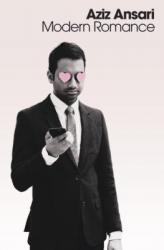
I was honestly surprised by this book. As has been the case with most
comedians and the books they have written, I expected this to be a bit of an
autobiography in the veins of Bossypants , Yes Please , The Bassoon King: My
Life in Art, Faith, and Idiocy , and Is Everyone Hanging Out Without Me?
Instead, I was presented with a book filled with data, analysis, and
information about how modern relationships work when compared with the
relationships of past generations. Having gone through some of this “Modern
Romance” myself, I could certainly relate to the information being
presented, nodding my head in agreement as things I noticed suddenly had
explanations pinned to them.
But it wasn’t that the book was not an autobiography that surprised me, it
was the humorous way that Aziz Ansari managed to present this subject matter,
while also maintaining high scientific rigor. If I were to put this in a
category of non-fiction humor, it would probably be in the vein of I Am
America but without the tongue-in-cheek satire. Maybe I’m even wrong in
this characterization and it should fall under the collections of humor
around a single topic, like the works of Dave Barry. Either way, this book
was informative and not judgmental in the slightest. It was merely presenting
the facts that had been discovered, but in such a way that made me laugh
about the whole situation.
For those people who are in relationships, want to be in relationships, or
who just want to play the singles game, this book is an optimistic look at
what has changed, what is likely becoming the “norm”, and what we should
all expect from relationships in the future. Simply put, the smartphone has
complicated the world of romance, but it has also given a lot of benefit to
those who know how to use it as a tool to get what they want out of life. I
would almost encourage Ansari to continue writing books like this, because
his humor has made a somewhat dry subject a lot more palatable.
A great book that explores why the dating scene is so different now, I give
Modern Romance 4.0 stars out of 5.
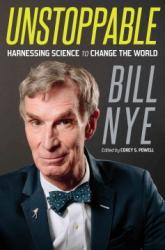
I grew up on Bill Nye’s science show on PBS. I appreciated his
straightforward approach to teaching science to children that was both
informative and humorous. Possibly in part due to this, I now find myself
with a Master’s degree in Mechanical Engineering and employed in a very
technical field. I also find myself writing books which are surreptitiously
educational, hoping that the entertainment value of my writing will subtly
inspire people to learn more about science. Consequently, merely based on the
author of this book, I was interested in reading it, despite the somewhat
vague and ambiguous title.
While there was plenty of very interesting material presented in this book,
much of it I had already known about by keeping up with the technological
advances of the world today, I felt like its order was a little off. Right
from the get-go, Nye hammers home that global climate change is a problem.
The entire rest of the book then explores technologies and developments that
could potentially solve, or at least abet the rapid rate of change leading to
our soon-to-be unsustainable world. As a result, there’s a bit of fear
introduced from the beginning that is tugged on throughout. I would have
flipped these topics around and shown all the neat scientific breakthroughs
(or near breakthroughs) we have in our current world, then use the knowledge
of these advancements to address the climate change issue. In this way, I
think the tone would be more inspiring and lead more people to pursue the
solutions instead of being alarmist and driving people to act out of fear
instead of out of the hope of what our future could be if we act now.
Nye’s trademark humor is sprinkled throughout his writing, which made
reading this book enjoyable. Furthermore, since he takes a very personal
approach with his examples and stories (I love his “love/hate”
relationship with Ed Begley Jr.), many of his opinions leak through. Many
times throughout the book, these opinions came off to me as a bit
off-putting, especially if the person reading this book happens to be of an
opinion differing from Nye’s. As such, there was a bit of “preaching to
the choir” that might not be helpful when trying to change the minds of
those who don’t share the same opinions. Still, his attempts at re-framing
the problem of global climate change and adjusting how we think about it were
quite admirable and I think everyone should give his ideas a chance.
A tale of both imminent danger and inspiration, I give Unstoppable 3.5 stars
out of 5.
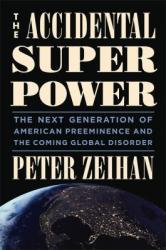
I can’t remember when or why I added this book to my “to-read” list on
Overdrive, but I’m certainly glad I did. While it’s a little dated from a
2017 perspective, The Accidental Superpower is an incredibly insightful book
that helps to peel back the onion of global politics and economics to reveal
the underlying factors that are, and have been, shaping the world into what
it is today. As a bonus, after reading this book, I have a better
understanding of how countries and societies develop from a geographical and
economic standpoint and can use these insights to aid in the world-building
for a few of my upcoming novel series.
Right from the get-go, The Accidental Superpower opened my eyes to the
obvious: geography determines economy. Mountains separate areas almost as
well as oceans do, but the best economies are the ones that can move their
goods about in the fastest and most efficient ways. As luck would have it
when first colonizing the United States, the founding fathers had no idea
just how immensely fortunate they would be with the geography to their west.
Peter Zeihan expertly shows how other countries have geographic problems that
are keeping them from being nearly as united as the United States.
However, disaster is soon upon us. The demographic changes throughout the
world will soon impose strains on all economic systems. While the world will
continue to be in crisis due to its geographies influencing the economies of
its various nation states, the United States is the only one holding it all
together, mostly due to our generosity of offering “free trade” after the
end of World War II. If we pull that rug out from underneath the world, we in
the U.S. will likely survive, but at the cost of the global economy
collapsing.
A must-read for anyone who exists in this global economy, I give The
Accidental Superpower 4.5 stars out of 5.
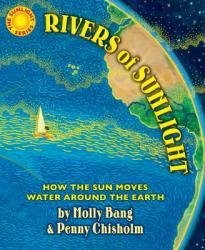
"I am your sun. My energy warms your days. I light up your world." So begins a lovely book about how the entire Earth's water system works. The illustrations are the sort you can sink into and perseverate over. This book is so beautiful, in fact, that you will absorb the complexity of our Earth's hydrology without even realizing it. Check out Rivers of Sunlight and pour yourself into knowledge and beauty.
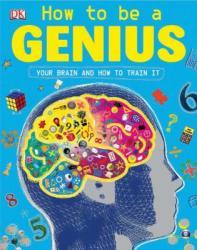
This incredible book tells you all about how your brain works, how you survive, and how you are the person that you are. Through very accessible graphics and clear descriptions, you learn so much! There are cool games, quizzes, puzzles, brain teasers, and more! Then put what you learn into practice to become a genius! Recommended for ages 10 and up.
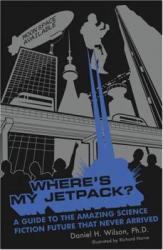
Some of the best science fiction ever written was strangely prescient with its predictions on how the world would advance, technologically. One of the best examples of this was Jules Verne in his story From the Earth to the Moon. Not only did he figure out what it would take to get away from Earth’s gravity, he predicted that the launch site would be in Florida. Ever since then, we have looked to the authors of science fiction to tell us what could be possible in the future of tomorrow.
Unfortunately, some of these predictions weren’t quite realistic. While jetpacks and moon colonies sound cool in the pages of a fictional book, they just aren’t practical in reality. Still, our childlike wonder and innovation tried its best to create what the science fiction authors of yore dreamt up. In Where’s My Jetpack?, Daniel H. Wilson does his best to explain where all these fantastical inventions and concepts are in their process toward being fully realized. But don’t worry about this being a stuffy tome full of complicated science. Wilson does a good job infusing humor with his research, which helps to show how ridiculous some of these ideas really are.
My one challenge with this book came with the fact that it was published back in 2007. It’s been 10 years since this book came out and now much of its research is either naively optimistic or didn’t pan out. What’s perhaps even more exciting is being aware of the technological developments that have made some of the impossibilities mentioned in this book at least somewhat plausible. Consequently, it’s best to read this book as a snapshot in the technological timeline that is our current reality.
A humorous look at the amazing technological developments inspired by sci-fi, I give Where’s My Jetpack? 4.0 stars out of 5.
For more reviews of books and movies like this, please visit www.benjamin-m-weilert.com


